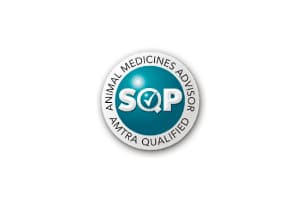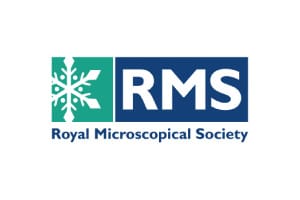Wormcount.com Subscriptions
Regular subscriptions are now available from Wormcount Veterinary Laboratory! By subscribing, you save an extra 7.5% on top of existing discounts.
Subscriptions provide an easy solution to keeping on top of monitoring your pet’s parasite burden. All you need to do is fill in a few details, select your required testing frequency, and leave the rest to us. Our team at Wormcount.com will handle all the logistics, delivering the testing kits to your doorstep and providing expert guidance if any issues arise.
Signing up for subscriptions with Wormcount.com ensures convenience, cost-effectiveness, and peace of mind, allowing you to prioritise your pet’s parasite health without any hassle.
Don’t miss out to simplify and optimise your pet’s parasite care – subscribe today!
Choose your subscription
Further Information
Wormcount.com gives you direct access to a fast, professional veterinary laboratory without the need for a referral from your Vet.
Our laboratory has been purpose designed with bespoke equipment and facilities, allowing us to provide a professional and high-quality service direct to the public and veterinary practices. All of our analysts undergo rigorous training before they undertake any testing. Even once approved for testing, they undergo regular ‘blind’ spot checks and ongoing external personal development sessions to keep them at the forefront of the industry throughout their careers. Our strict bio-security and method procedures ensure safe, repeatable and accurate results from every sample as they transit through the lab.
We have an excellent customer service reputation and our administration and support teams are very welcoming of any queries you have or support you require at any stage of the process. If you come direct through us, we have a host of Registered Animal Medicines Advisors (RAMAs) on hand to provide free aftercare advice regarding your pet’s results; which may involve recommending treatment or veterinary intervention where appropriate. Unlike some laboratories, we do not charge for this support.
- All screens are undertaken within our own laboratory by our highly trained analysts. Screens are undertaken on a sample of your animal’s faeces that you send to us in one of our specially designed collection kits
- A Faecal Egg Count provides a quantification of the number of worm eggs in your pet’s faeces (poo) which is therefore an indication of the number of adult female worms in your pet’s gut.
- Each species of worm egg is identified and, where appropriate, quantified to give an indication of the level of infestation.
- Worm egg screens also detect coccidia, excess lipids, microscopic food and fibre as standard This additional information can be very useful to your vet in their pre-diagnosis of underlying health conditions. This is especially useful for ferret, rabbit and cavy owners.
- The worm egg screen results are presented in an email report as ‘eggs per gram’ (epg) of faeces. There is an easy to understand key on your Wormcount.com result sheet.
- Lungworm screens detect, identify and quantify live larvae if present in the faeces
Some worms can appear as mature, egg-laying adults within as few as 15-32 days from being picked up as eggs or larvae by your animal. In the same way that chemical wormers offer no ongoing protection against internal parasites between doses, there is nothing to stop your animal picking up a worm burden the following day after a screen. It is therefore important to have your pet worm counted regularly.
- The average worm egg screen and lungworm testing cycle for healthy adult companion animals is every 3 months. Higher risk animals should be screened more frequently. If you would like advice regarding the appropriate screen cycle for your animal, please contact us.
- Giardia can be present within your animal, but they may be asymptomatic and yet still contagious (your animal may be spreading the infection but showing no symptoms). On this basis, the giardia screen is often undertaken either at the onset of potential symptoms, or once annually to confirm that the animal is not a carrier. Further information can be found on our giardia screen page. Please note that this screen is only appropriate for dogs and cats.
- Pregnant and young animals have very different parasite control requirements from adult animals. We have an excellent and well-respected companion animal breeder programme, from pre-conception through to 1 year of age. Please contact us if you would like further information.
For dogs and cats, the potentially fatal lungworm is on the increase and is now present in every county. Our screen is capable of detecting all five of the species of lungworm currently present within the UK. Depending on the species and development of the infestation, symptoms can include coughing, breathlessness, debility, weight loss and increased bleeding from wounds. It should however be noted that very often infestations are asymptomatic, therefore regular screening is highly recommended, even if your pet is exhibiting no symptoms. Further information can be found on our lungworm page.
Giardia is a gut dwelling protozoan animal which is commonly picked up from drinking contaminated water. It is highly contagious between pets and can also be passed onto humans. Very often Giardia is asymptotic within animals, but it can still be spread to other animals and potentially humans at this point. If symptoms are present within your dog or cat, they may include intermittent vomiting and/or diarrhoea as well as lethargy and weight loss.
The testing procedure adopted within our lab identifies antigens rather than cysts as this is a far more accurate measure. Based on research undertaken by an external board, no method can ever be claimed to be 100%, but the test we use rates incredibly highly on specificity and sensitivity; which is why we have chosen to adopt this procedure as our standard practice. Please note this screen is only appropriate for dogs and cats. If you have another companion animal and suspect Giardiasis, we recommend you contact your vet. For further information and to order a test, please visit our giardia screen page.
Increasing numbers of pet owners are turning away from chemical wormers, preferring to use natural products, or using a combination of the two. It should be remembered that what works for one animal does not necessarily work for all. If you choose to use chemical wormers, it must be noted that not all of the chemical groups kill all the species of worms and they do not offer ongoing protection or ‘cover’ against picking up an internal parasite burden between doses. Knowing which worm species are present is key in determining which treatment is most appropriate and allows targeted care.
Whether you regularly worm using chemical or natural products, or you have chosen not to worm at all, the only way to have peace of mind is to be sure that your chosen regime is working. A worm count will check the internal parasite burden in your animal and allow you to decide whether worming is required. It must be remembered that a worm count is only a snapshot of what is going on inside your animal at the moment you take the sample. Regular screens are therefore advisable to monitor your pet’s parasite burden over time.
We have an excellent and well-respected companion animal breeder programme, from pre-conception through to 1 year of age. Whether you are a first-time or well-established breeder, we are able to support you throughout the whole parasite control process. We can also send you information leaflets for the puppy packs so please let us know at time of ordering if you would like us to include these in your dispatch. Please contact us if you would like further information.

Remember – animals do not have to ‘look wormy’ to ‘be wormy’.
Testimonials






